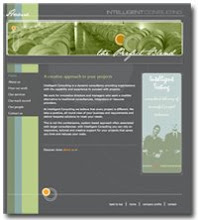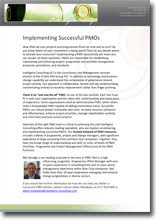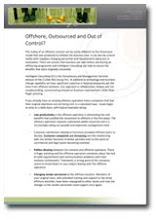
The height of summer is always tricky for business and subsequently, the labour market; lots of people are on annual leave and profitability inevitably slows, but in the recruitment industry huge rises in permanent recruitment and in temporary placements in Social Work and Finance & Accounting totally defy this.
According to SparkHire’s 2014 Staffing Industry Trend Report, ‘the staffing industry is expected to grow at least 6% in 2014’. A significant amount of this could logically be attributed to the new temporary labour force and each sector’s increasing need for contract workers. Temporary hiring more than doubled in 2013 and has been trending steadily upwards ever since. As more and more vacancies for highly skilled and specialised skill sets appear, employers are looking for quick fixes for their workforce gap, making the most of the nature of temporary labour, which ‘can often jump right in and hit the ground running’.
READ MORE: 5 reasons people are choosing temporary work
As predicted, salaries are rising. In particular, salaries for Admin & Secretarial, Education & Training and Transport were trending upwards in July. Based on a three month rolling average, the highest salaries were found in Consultancy & Senior Appointments, Banking, IT, Defence & Military, and Accountancy. This rise in salaries continues a precedent which in particular makes it difficult for management, who often feel they have no other tools of retention than raising salaries. We address this issue in our Sustainable Solutions Series and offer alternative solutions to raising salaries in order to attract and retain top talent.
The UK has seen the ‘highest hiring optimism in Europe’; according to Markit’s Business Outlook Survey. A high demand for new housing will result in a significant increase in construction opportunities throughout the UK, which will consequently offer many recruiting opportunities. Indeed, manufacturers have predicted that employment in their sector will increase at an astonishing rate over the next year.
The labour market itself is buoyant at present with ‘new export opportunities, an improving economic environment, increased consumer confidence and new product developments as key drivers for potential growth’ (Markit). This, however, is not all; the same report warns of ‘increased staff and raw material costs, rising house prices and fragile political and economic conditions in export markets’ which could in itself be an obstacle to future economic growth.
Of course, the result of the Scottish referendum may also result in uncertain shifts in the labour market. There will certainly be some big changes should Scotland vote ‘Yes’ for independence, forcing many companies to relocate below the border.
Keep an eye on our blog for our next article, ‘Scottish Independence; what will it mean for the job market?’







No comments:
Post a Comment